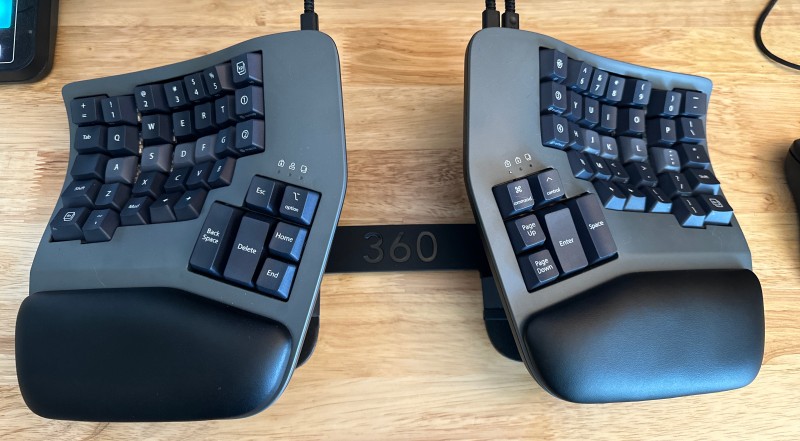Creating a Window Wrapper Class: Redux
Okay, so I know you’re probably here because you searched for “window wrapper class” or something similar and expected the article that I use to host on Scriptionary that threw a bunch of C++ code at you for you to copy and paste. I regret to inform you that the article you were looking for has ceased to exist.
Sorry about that.
However, in its place I have for you this very post which will teach you how to accomplish creating such a wrapper all by yourself. I hope that is okay since all you really need to know is the how to create a window procedure that you can use with your custom class.
The Window Procedure
The window procedure is a function that is tied to a window upon creation. This function handles the window’s events (also: messages, notifications) such as WM_PAINT, WM_SIZE and a plethora of others that a window can throw at you. The trick is to pass a function callback to WNDCLASS or WNDCLASSEX that is part of your class, which is pretty much impossible since you can’t pass instance members by reference. Let’s take a look at a standard windows procedure:
LRESULT CALLBACK WndProc(
HWND hwnd,
UINT message,
WPARAM wParam,
LPARAM lParam)
{
switch (message)
{
case WM_PAINT:
// handle event
return 0;
/* many more possible events */
default:
return DefWindowProc(hwnd, message, wParam, lParam);
}
}
Well, that’s pretty much as plain as Windows functionality gets, so nothing too special there. Let’s make this function a member of our imaginary class Window since no matter what, we will need a regular WndProc that will handle our events:
class Window {
// *snip*
LRESULT CALLBACK LocalWndProc(
HWND hwnd,
UINT message,
WPARAM wParam,
LPARAM lParam
);
};
Since we can’t pass member functions to serve as callbacks, we’ll have to do it the C+ way (somewhere between C and C++). For this we’ll need the feared static keyword, which signifies that the function is shared by all of the instances of our imaginary Window class:
class Window {
// *snip*
static LRESULT CALLBACK StaticWndProc(
HWND hwnd,
UINT message,
WPARAM wParam,
LPARAM lParam
);
};
You may not realize it, but we’ve already defined the hardest part of the entire window wrapper. Since StaticWndProc is static in nature, we can pass it as a function callback since it’s not bound to a specific instance of our Window class — almost like a global function.
User Data
You may wonder: Okay, so how do I make this static function specific to my current instance? And most importantly, how do I get from the StaticWndProc back to the regular LocalWdnProc?
Well, this is where we’re lucky that the Windows API provides us with a bit of leeway. Let’s take a look at the CreateWindow function prototype straight from the MSDN documentation:
HWND WINAPI CreateWindow(
__in_opt LPCTSTR lpClassName,
__in_opt LPCTSTR lpWindowName,
__in DWORD dwStyle,
__in int x,
__in int y,
__in int nWidth,
__in int nHeight,
__in_opt HWND hWndParent,
__in_opt HMENU hMenu,
__in_opt HINSTANCE hInstance,
__in_opt LPVOID lpParam
);
The last parameter, lpParam, allows us to pass custom data to the window procedure which is accessible when the WM_NCCREATE event is active. This means that when we pass static_cast<void*>(this) into lpParam, we can pick that data back up in our static window procedure.
The problem is that this data doesn’t persist beyond the WM_NCCREATE event, so we need to find a way to store it somewhere permanent; this is where that leeway that I mentioned before comes in.
If you’ve never heard of the constant GWLP_USERDATA I don’t blame you since there’s not much documentation about at MSDN. GWLP_USERDATA is a constant passed to the SetWindowLongPtr and GetWindowLongPtr functions, providing access to a pointer-sized chunk of memory attached to your window.
So when we process WM_NCCREATE, we’ll grab the lpParam pointer passed to CreateWindow, and set it as user defined window data by using SetWindowLongPtr with GWLP_USERDATA:
LRESULT Window::StaticWndProc(
HWND hwnd,
UINT message,
WPARAM wParam,
LPARAM lParam)
{
// Check if we're currently creating the window:
if (message == WM_NCCREATE)
SetWindowLongPtr(
hwnd,
GWLP_USERDATA,
reinterpret_cast<LONG_PTR>(
reinterpret_cast<LPCREATESTRUCT>(lParam)->lpCreateParams
)
);
// Retrieve the data stored in the WM_NCCREATE event and
// cast it to a Window pointer:
Window* UserWindow = reinterpret_cast<Window*>(
GetWindowLongPtr(hwnd, GWLP_USERDATA)
);
// If the data returned was NULL, default to the by windows
// provided default window procedure:
if (NULL == UserWindow) {
return DefWindowProc(hwnd, message, wParam, lParam);
} else {
return UserWindow->LocalCallback(hwnd, message, wParam, lParam);
}
}
Conclusion
Let’s review the entire process step by step:
- Pass the static callback into the
WndProcmember of theWNDCLASSstructure for your window, - Pass a this pointer into the
lpParamparameter of theCreateWindowfunction, - Retrieve the pointer when handling the
WM_NCCREATEevent and store it withSetWindowLongPtrusing theGWLP_USERDATAconstant, - After that, retrieve the pointer to your window using
GetWindowLongPtrusing theGWLP_USERDATA, cast it back to your window class and call the local window procedure.
Share on
X Facebook LinkedIn Bluesky



